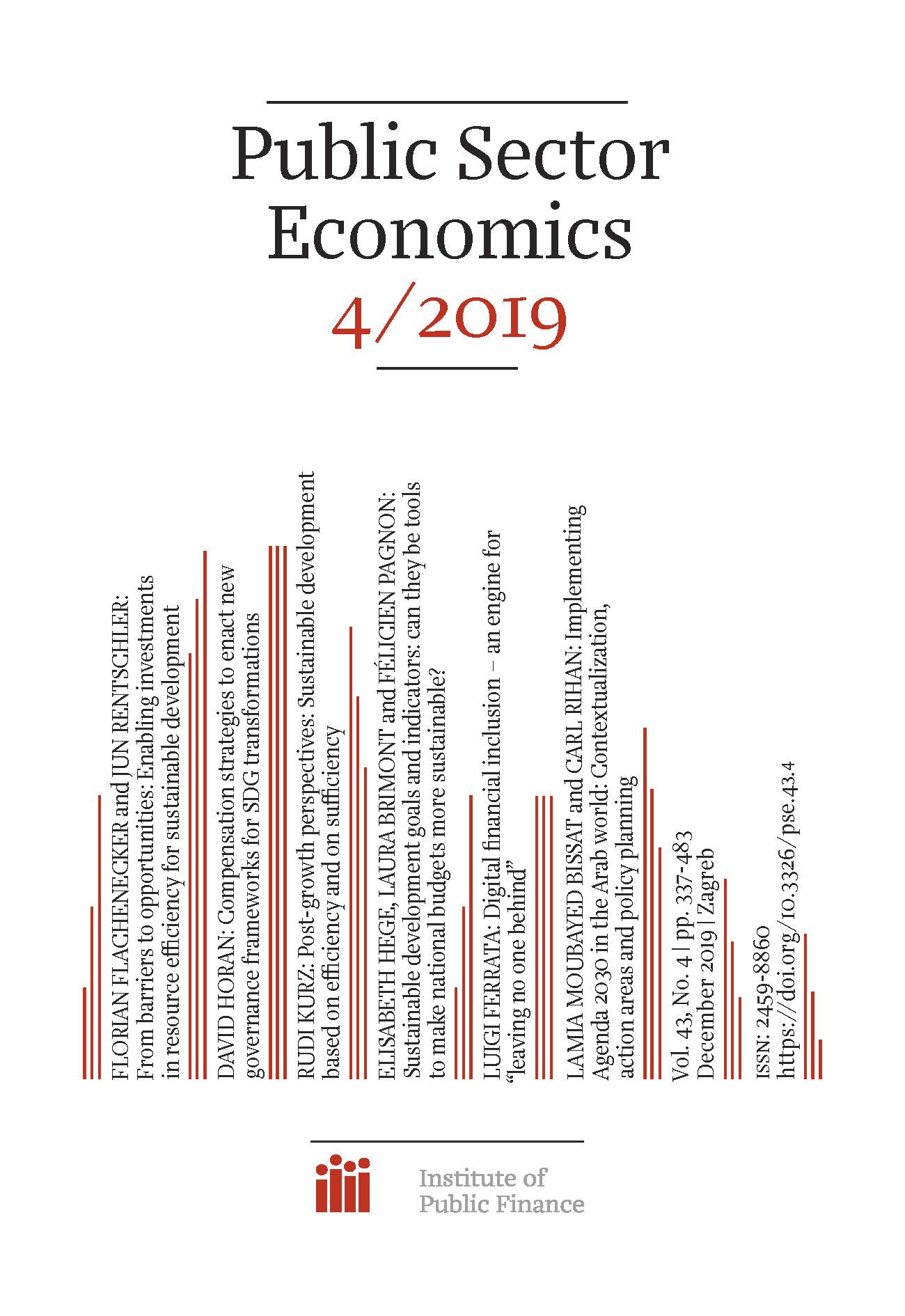Digital financial inclusion – an engine for “leaving no one behind”
Keywords:
Agenda 2030, Sustainable Development Goals, financial inclusion, poverty, gender parity, fintechAbstract
Although none of the goals of the United Nations Agenda 2030 is dedicated to finance, can the use of financial instruments play a role in achieving some of the Sustainable Development Goals? Can financial instruments contribute to the reduction of hunger and poverty, to ensuring healthy lives, gender equality, decent jobs and the growth of micro, small and medium-sized enterprises (MSMEs), reducing inequalities, enhancing an effective fight against corruption and increasing the mobilization of additional financial resources? This article highlights how financial inclusion, meaning the access to financial services, allows the weakest to contribute to the achievement of the SDGs and to improve their life conditions. From the evidence of the UNSGSA (2018) report on integrating SDG progress through digital financial inclusion, it becomes clear that digital finance is a key that can help in boosting financial inclusion.
Additional Files
Published
How to Cite
Issue
Section
License
Copyright (c) 2019 Luigi Ferrata

This work is licensed under a Creative Commons Attribution-NonCommercial 4.0 International License.









